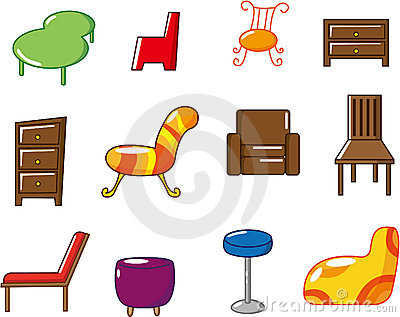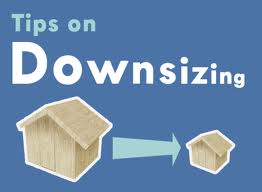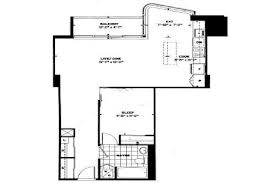
Boomers Downsize and Let Stuff Go!
If the 1980s were about greed and accumulating possessions, the current era is about downsizing and letting go of those possessions, says Denver gerontologist Karen Owen-Lee, author of "The Caring Code: What Baby Boomers Need to Learn About Seniors." "The Baby Boomers already started turning 65, and their parents are in their 80s, and they need to assist their parents from moving from their house of 40 years to independent living or assisted living," Owen-Lee said.
"That can be psychologically hard. Last week, a woman called me and said that her mother is paralyzed by the task of cleaning out the basement. So we talked about some options. We came up with having a therapist talk to the mother, not more than for 15 minutes initially, to help understand that paralysis. And gradually increase that time, as the mother can handle it, until she's ready to tackle the basement."
Brace for the emotional, physical and, if you're not careful, monetary tolls of downsizing. Does the new home mean moving from a longtime neighborhood full of friends, shifting to an unfamiliar church or other house of worship? How will you forge relationships in the new community?
Reluctance to give up possessions tempts some people to rent storage units that cost $40 to $230 per month. A new home can seduce you into spending beyond your budget for upgrades to counters, window treatments and light fixtures. Or the profit from selling a longtime home can lure people into buying, along with their new, smaller primary home, a time share or vacation home that escalates monthly expenses -- and becomes a burden when an accident or illness keeps them homebound.
"Downsizing is scary, and it's a major event in life, like having an empty nest after the children leave," Owen-Lee said.
"One way to deal with that is by preserving the stories of the things you value. My parents owned an antique store in Pennsylvania, so my house is stocked with them. What I recommend, and what I do, is write the story of each piece, and put it on the back. I have a 91-year-old chest that an artist in my hometown painted with a tole pattern taken from the curtains in the room where it was kept. So we taped that story to the back of that furniture, so people will know where it came from."
Currently, Owen-Lee is collecting elders' stories for another book she's writing. The goal: Preserve important stories, and provide conversation prompts during family visits.
"So often what happens is that families go to visit a senior, but have nothing to talk about," she said.
"Gathering stories is fun. And often a senior who doesn't have a long attention span can remember and help tell stories about their lives," with a nudge from the note taped to a chair or chest.
For Mary Johnson, 77, a retired teacher now living at the Clermont Park retirement community in Denver, downsizing was a combination of habit and the lessons learned at her mother's side.
"I lived in 30 houses over 45 years, and the longest we ever lived in one place was four years," she said.
For Johnson, now 77, and her late husband, buying and selling houses was something of a part-time job. As teachers, they got a significant tax break when they bought a house as a primary residence and sold it within a certain time frame.
"It was kind of a hobby. We'd buy a house and sell it after two years, and pay no taxes. The next house would cost a little more than you made on the last one. We were good at moving. I really learned about downsizing when my mother and dad moved into a retirement place 20 years ago. They had a lot of things."
Helping her parents with that transition was radically different from the Johnsons' efficient pack-and-go routine.
Share the memories:
She sat down with her mother. They spent days going through every box and each drawer, talking about the memories associated with each souvenir and scarf, and debating over what to keep, entrust to her children and grandchildren, or donate.
"That way, you get to share the memories, and always have those in your heart, and the gift there was in spending that time with my mom," Johnson explained.
"Before I moved to Clermont Park, I used painter's tape to mark everything I wasn't taking here. Then I called the kids, and said to take whatever they wanted," she said. "And I gave them a deadline. You have to do that. Otherwise, kids procrastinate."
Downsizing at any age:
Reducing your stuff to life's essentials is key for aging adults moving from longtime homes to smaller, more efficient residences, but it's also not a bad idea for younger adults who want to avoid being overwhelmed by possessions.
Where to start?
Many retirement communities and real-estate companies can point prospective and new residents toward downsizing and organizing specialists. Younger people who want to scale back to save money can count on real estate businesses to help.
If you prefer to sort out your own belongings, do some research first. Some blogs and websites offer valuable advice on editing your belongings, and how to budget for the things that you'll find you need after you move.
When interviewing moving or downsizing specialists, ask these questions:
-- How are your employees screened?
-- What is your pick-up and delivery timetable? (Specific times are preferable to a window spanning hours or days.)
-- Who will be the contact staffer tasked with monitoring the move from start to finish?
Some helpful tips from the pros:
-- Begin in the room you use least. School yourself to stay with that room, instead of allowing yourself to be distracted by sorting out another room.
-- Tell your adult children and friends that you're downsizing. Someone moving into student housing or their first home might be interested in your discards.
-- If certain items have special meaning in your family but you can't bring them to your new home, photograph each one, and e-mail or give a copy of the photographs to your children, with three check boxes: Must Have! Would Like. Pass. Tell the children to fill out the boxes judiciously, because they'll be the new owners.
-- If a room is too overwhelming, assign yourself to sort through one chest of drawers, or one closet, and then quit for the day.
-- Keep a camera or smartphone handy as you sort. Take photographs of clothing or objects that evoke fond memories. Then put the objects in the discard pile. It also helps to have a friend or relative willing to help with the sorting process.
Telling the story of the memory associated with the object can be help you let it go.
-- Remind yourself of moving costs. You'll save money by moving less, and your new residence will look spacious and inviting, not like a crowded secondhand store.
-- As you sort through your closet, reverse the hangers of the clothing you're ready to discard, or which you haven't worn in more than a year. After a week, collect the reversed hangers and discard that clothing.
-- Measure your new closets. Compare that measurement to your current closet. Try to eliminate enough clothing to leave some breathing room in the new closet.
-- Edit your linens: In your new, compact residence, you don't need as many towels and sheets.
-- Easy tosses and donations: Old magazines, books, lawn and gardening supplies, canned goods, spices, clippings, cleaning supplies, old bills and receipts.
-- Shred all papers except your most essential documents (including financial plan, estate plan, medical and insurance records, personal information).























